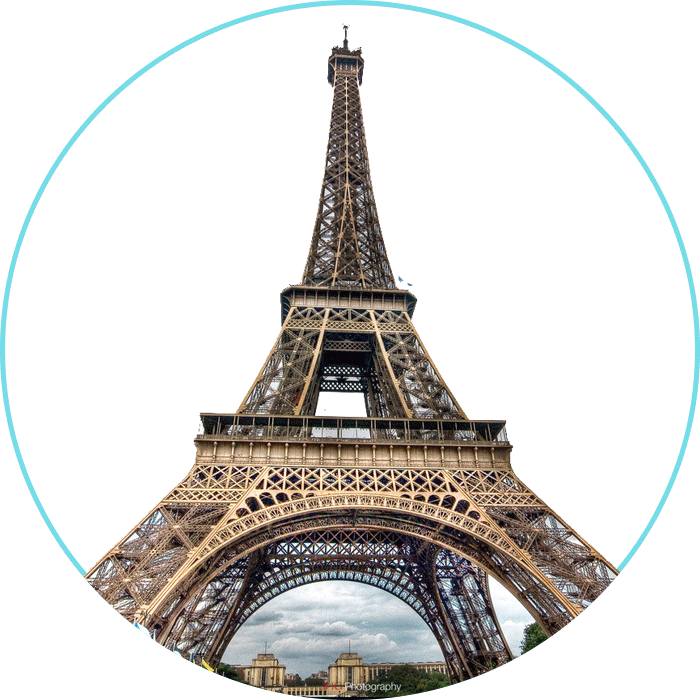
If you're aiming to study in a country renowned for its vibrant culture and esteemed academic standing, France should be at the top of your list. As one of the most sought-after destinations for international students, France offers an exceptional opportunity for anyone considering studying abroad.
Currently, more than 370,000 international students are pursuing their education in France. In fact, international students make up approximately 10% of total university enrolments, with many focusing on graduate-level programs.
France boasts a diverse landscape of higher education, comprising over 3,500 institutions, both public and private. This includes 72 universities, 25 multi-institute campuses, and 271 doctoral schools. Additionally, there are 227 engineering schools authorized to confer engineering degrees, 220 business and management schools, 45 public post-secondary art schools, 22 architecture schools, and around 3,000 private institutions and academies.
The French government extends a warm welcome to foreign students, simplifying the application process to ensure a smooth transition for international applicants.
France offers diverse opportunities for international students after completing their intermediate education. Here’s a brief overview:
Many programs are available in English, but knowledge of French is beneficial.
Universities provide cultural integration support, student organizations, and housing options.

Your journey starts with registration –
don't wait, secure your spot today
Studying in France provides a unique blend of academic excellence and cultural experience, making it an attractive destination for students worldwide.
France has multiple intakes for international students, allowing for flexibility in pursuing higher education. Here’s a breakdown of the main intakes and relevant details:
| Intake | Start Date | Available Programs | Deadlines |
|---|---|---|---|
| Main Intake | September to October | Most undergraduate and postgraduate programs | January to May of the same year |
| Spring Intake | January or February | Limited undergraduate and master's programs | September to December of the previous year |
| Summer Intake | May or June | Short courses, summer schools, language programs | Varies by institution; typically, March to April |
If you are an international student from a non-EU country applying to a university in France, you will typically need to provide the following documents:
Once you have identified the universities and programs you wish to apply. You can begin the application process. Note that application procedures and entry requirements may vary between universities.
Some institutions may require standardized test scores such as the GRE or GMAT, which help assess the readiness of applicants for advanced studies.
| Expense Category | Estimated Cost (EUR) | Details |
|---|---|---|
| Tuition Fees | Costs vary significantly based on the institution type | |
| Public Universities | €200 - €3,000 per year (approximately) | |
| Grandes Écoles | €5,000 - €15,000 per year (depending on the program) | |
| Private Institutions | €3,000 - €20,000 per year (varies widely) |
Completing a Maters degree in a France can open up a variety of jobs opportunities. especially if you have studied in a field that aligns with the needs of the job market. Here are some sectors and job roles that may be available to you:
| Sector | Job Role | Average Salary (Annual) |
|---|---|---|
| Engineering & Tech | Software Engineer | €40,000 - €60,000 |
| Data Scientist | €45,000 - €70,000 | |
| Project Manager (IT) | €50,000 - €75,000 | |
| Cybersecurity Specialist | €50,000 - €80,000 | |
| Business & Finance | Financial Analyst | €35,000 - €60,000 |
| Marketing Manager | €45,000 - €70,000 | |
| Human Resources Manager | €50,000 - €75,000 | |
| Business Consultant | €50,000 - €85,000 | |
| Healthcare & Life Sciences | Research Scientist | €40,000 - €65,000 |
| Clinical Project Manager | €50,000 - €75,000 | |
| Pharmacist | €40,000 - €60,000 | |
| Healthcare Administrator | €45,000 - €70,000 | |
| Education & Research | University Lecturer | €35,000 - €60,000 |
| Research Assistant | €30,000 - €45,000 | |
| Educational Consultant | €40,000 - €65,000 | |
| Hospitality & Tourism | Hotel Manager | €35,000 - €60,000 |
| Event Coordinator | €30,000 - €50,000 | |
| Travel Consultant | €28,000 - €45,000 | |
| Creative Industries | Graphic Designer | €30,000 - €50,000 |
| Content Writer | €25,000 - €40,000 | |
| Digital Marketing Specialist | €35,000 - €55,000 |